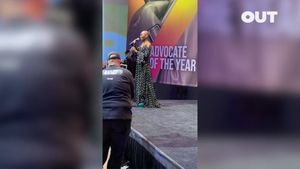Utah state
representative David Litvack may take a different approach
with the hate-crimes bill for the coming session. The Salt
Lake City Democrat, a perennial sponsor of the
bill, said several options are still on the table, but
the leading contender would drop the categories.
It would also replace the penalty enhancement with an
aggravating factor to be considered by the sentencing judge
or the Utah Board of Pardons and Parole.
Litvack said the possible new direction arose
out of a working group as a way to "hopefully, take
some of the venom out of the issue" and garner
Republican support for the measure.
The hate-crimes bills have failed repeatedly.
Some opponents object to any hate-crimes legislation,
contending punishment should be according to the crime
rather than according to the motives behind it. Others have
objected to including sexual orientation among the
categories of bias or prejudice, which also have
included race, color, disability, religion, national
origin, ancestry, age, and gender. The
legislation had support from law enforcement and
prosecutors, who say a 1992 civil rights statute is
unenforceable after being stripped of its list of
categories. A new draft proposal would make it an
aggravating sentencing factor if a victim or property
is selected primarily because of membership or
perceived membership in a group. "It's not the
complete package that we were hoping for in terms of
enhancements, but it is a step up from where we are
currently," Litvack said. "It does provide a tool to
hold offenders of hate crimes accountable."
Litvack said he won't make a decision on the
bill until he gets more community feedback and makes
sure "we fully understand it."
Republican senate president John Valentine said,
"I can confirm that having categories of groups has
been a major stumbling block in past approaches. If
you're in the 'right' group, you get protection; if you're
not in the 'right' group, you don't."
A Georgia hate-crimes law that didn't name
categories was stricken down as unconstitutionally
vague by that state's supreme court. However, Utah
attorney general Mark Shurtleff and members of a working
group say the new Utah legislation would pass
constitutional muster. That's because it contains a
section requiring consideration of the degree to which the
victim's selection is likely to cause emotional or other
harm or incite community unrest, Shurtleff said.
Shurtleff said the Georgia ruling had called
attention to the lack of such language in Georgia's
law. "This is something we can pursue. The question
is, Is it watering it down?" Shurtleff said. "I don't
think it does."
Paul Boyden, executive director of the Statewide
Association of Prosecutors, said the aggravating
factor doesn't step up a penalty as would an
enhancement, for example, from a third-degree to
second-degree felony. Instead, it's meant to help a judge or
the Utah Board of Pardons and Parole decide what
sentence is appropriate within a range, he said.
"Judges and the Board of Pardons to some degree do
take this into consideration already," Boyden said. "If you
memorialize something, it gives the judge something to hang
his hat on." (AP)

















































































